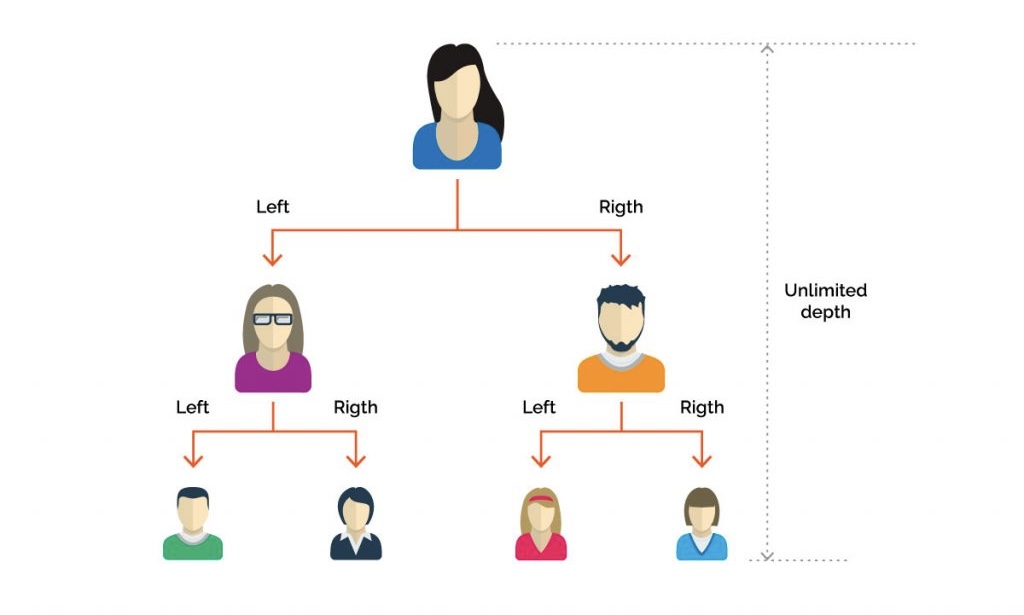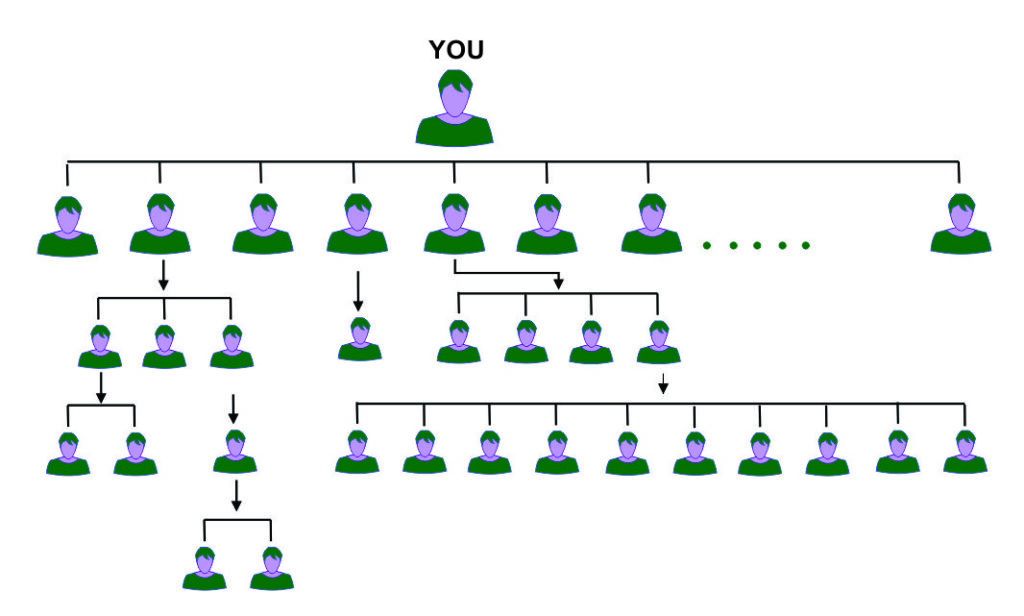
Network Marketing vs Affiliate Marketing
In an age where anyone with a computer can technically call themself a digital marketer, concepts like network marketing and affiliate marketing have run rampant online. Long gone are the days of working at a marketing agency or offering marketing consultancy services to businesses because marketing is now do-it-yourself. While network marketing has been around long before the internet, affiliate marketing has come into existence because of it. In this article, I will do my best to explain the differences between network marketing vs affiliate marketing. You might be surprised to know that they are actually very different from each other. Both network marketing and affiliate marketing are entirely different concepts (even though you hear both terms thrown around in similar circumstances as one another).
Network Marketing
To start my explanation of network marketing vs affiliate marketing, I’m goin to explain what network marketing is. Network marketing can also be referred to as direct marketing, referral marketing, or multi-level-marketing (MLM). And yes, network marketing opportunities are typically pyramid-like systems. For example, you know of the big network companies already:
- Amway
- Mary Kay
- Tupperware
- Avon
- Herbalife
- Etc.
You might know someone who’s a part of one of those companies already. And people have been promoting those companies’ products since long before the internet was invented. Avon, for example, was started in the 1920’s. And I remember when I was a kid, there was a Mary Kay lady who lived on our street (and drove the signature pink Cadillac). So companies have been using the network marketing business model for a long time now.
The Legalities of “Pyramid” Compensation Plans
Now, I wouldn’t use the dreaded words that anyone in a network marketing company would cringe when they hear: “a pyramid scheme”, because the big companies such as the ones listed above are in fact legitimate. They follow the rules and regulations that are set by the FTC. However, there is also a sea of unscrupulous, illegal network marketing companies that I would classify as pyramid schemes, Ponzi schemes, and flat out scams.
The main difference between the legitimate companies and illegitimate ones is that over 50% of the revenue that the company produces needs to come from actual product sales. If more than 50% of the company’s revenue comes from signing up independent distributors, it is in violation. Companies like that are just shifting money around and not actually producing much product that actually benefits society. That is the definition of a Ponzi scheme and is very illegal.
So, to be on the safe side, it’s best to choose one of the known, large companies. One quick way to know if a company is legit is whether or not they allow you to join their business opportunity without buying product. Signing up to be a distributor and buying product from the company should be entirely separate. However, with the way the compensation plans work at these companies, it’s hard to make much money if you don’t buy lots of product for yourself. So you’ll want to choose a company that makes products you really like.
That brings me to the next part… How their compensation plans work…
Network Marketing Compensation Plans
Well we’ve already established that a key difference between network marketing vs affiliate marketing is that network marketing companies use pyramid-based compensation plans. However, there are two types: Binary Plans (that you know as a “pyramid”) and Uni-Level Plans
Binary, “Pyramid” Style Compensation Plans
A popular type of compensation plan is called the binary plan. That means: you recruit two people, they both recruit two people, they all recruit two people, and so on and so forth. Is it starting to look like a pyramid?

…You can see that it definitely is. And they don’t have to be binary either. With many comp plans, you recruit three people directly under you, and with others you might recruit four people, and others might be five. It all depends on the company you join.
The Uni-Level Style Compensation Plan
Another type of comp plan in network marketing is the uni-level plan. That means: there is no limit to the number of individuals you recruit directly under you. But there’s usually a limit to how far down it goes. Because of that, it looks more like straight lines than a pyramid (hence the uni-level)…

The uni-level plan is generally thought of as better for marketers because you can promote to a lot of people. You can use all the traditional marketing skills you may have to promote the opportunity. You can even just promote the products, of which, a percentage of your customers may promote the opportunity forward too. This style is also preferred by regulators because it is more product-focused.
The Uni-Level Downside
The problem with the uni-level plan is that the commissions you can earn from product sales is usually very low (like 5%). Do you know how many customers you would need to sell to on a monthly basis to start being profitable? You would need at least those 31 people pictured above. Ideally way more.
So others may prefer the binary, pyramid, style. With the pyramid, all you have to do is recruit two people (or three, or four, or whatever the comp plan is). Then you make sure that those people recruit their two people, etc. If they don’t, then the whole thing doesn’t work and you waste your money buying too much product.
That brings me to next thing about how network marketing works…
The Network Marketing Catch
To have success in network marketing, you’ll first have to buy a lot of product for yourself (no matter the compensation plan). They all work the same in this. This is why there is money available to send up the chain to you. So you also need to make sure that the people you recruit:
- Have money to begin with (they don’t need your opportunity as a source of income).
- They are absolutely in love with the products and would love to spend hundreds of dollars a month on them.
If you can find those candidates, you’ve got it made. Otherwise, you may want to consider affiliate marketing…
Affiliate Marketing
Now I’ll get to the affiliate marketing part of this article on network marketing vs affiliate marketing… So unlike network marketing, affiliate marketing is not about recruiting people to join any type of business opportunity. It is just about promoting products and services. You see affiliate marketing all the time on YouTube. Whenever a YouTuber directs you to Amazon links in the description of their videos, those are affiliate links. When you click on those links and buy any of those products, that YouTuber receives a commission. That is affiliate marketing.
Many traditional companies have affiliate programs that you can join. Amazon obviously has one but so does Walmart, Best Buy, and many others. There are also affiliate marketing intermediaries that facilitate the links and commissions. You can use those intermediaries to find a whole world of companies that offer affiliate opportunities ranging from 5% to 80% commissions. Some companies sell inexpensive products that you can promote while others sell expensive products or services. I personally like the expensive products and services. Making 20% commission from a $2,000 product is $400!
The two main intermediaries that I like to use for high-ticket affiliate opportunities are:
How to Promote Affiliate Marketing Products & Services
Although growing a big YouTube channel and then putting affiliate links in the description of your videos is one way but a more realistic way is to think about search engines. What you can do is write blog posts or create review sites that get found in Google whenever someone searches for your affiliate product or service. When they land at your website or blog, read about the product or service, and then click on your affiliate link, they may very well buy too (since they were searching for it to begin with). When that happens, you earn commissions!
Think about it. The blog you just read is one such blog post. Is your mind blown?




